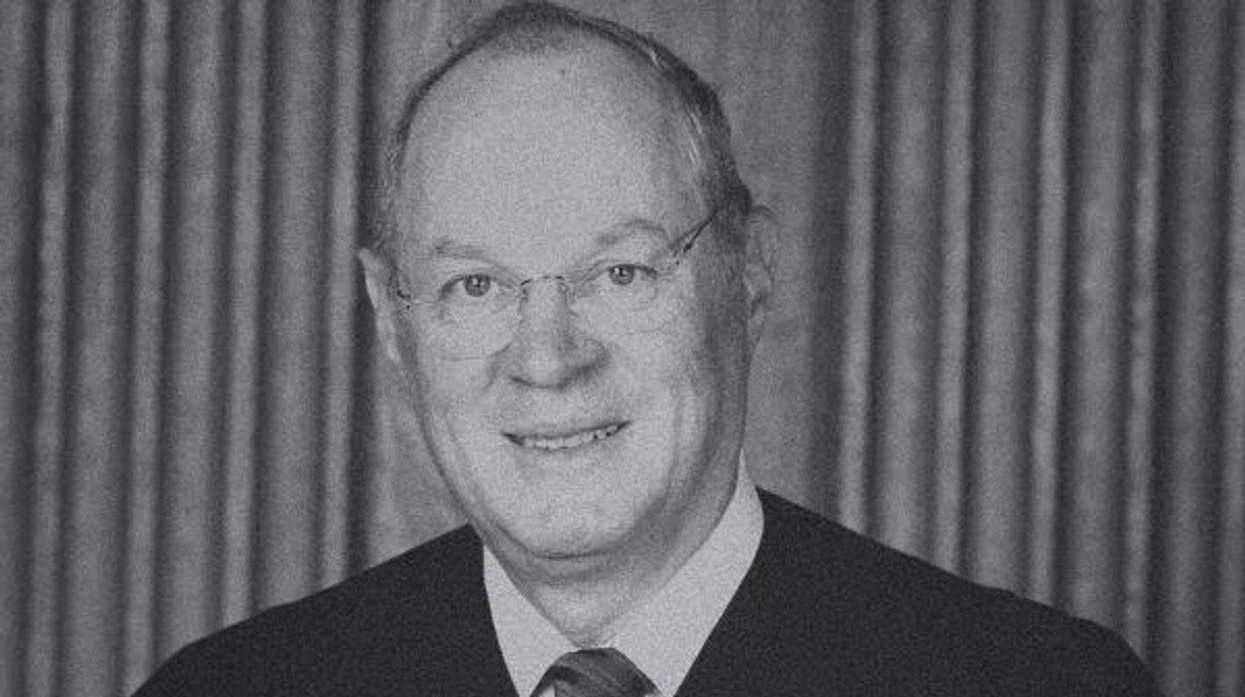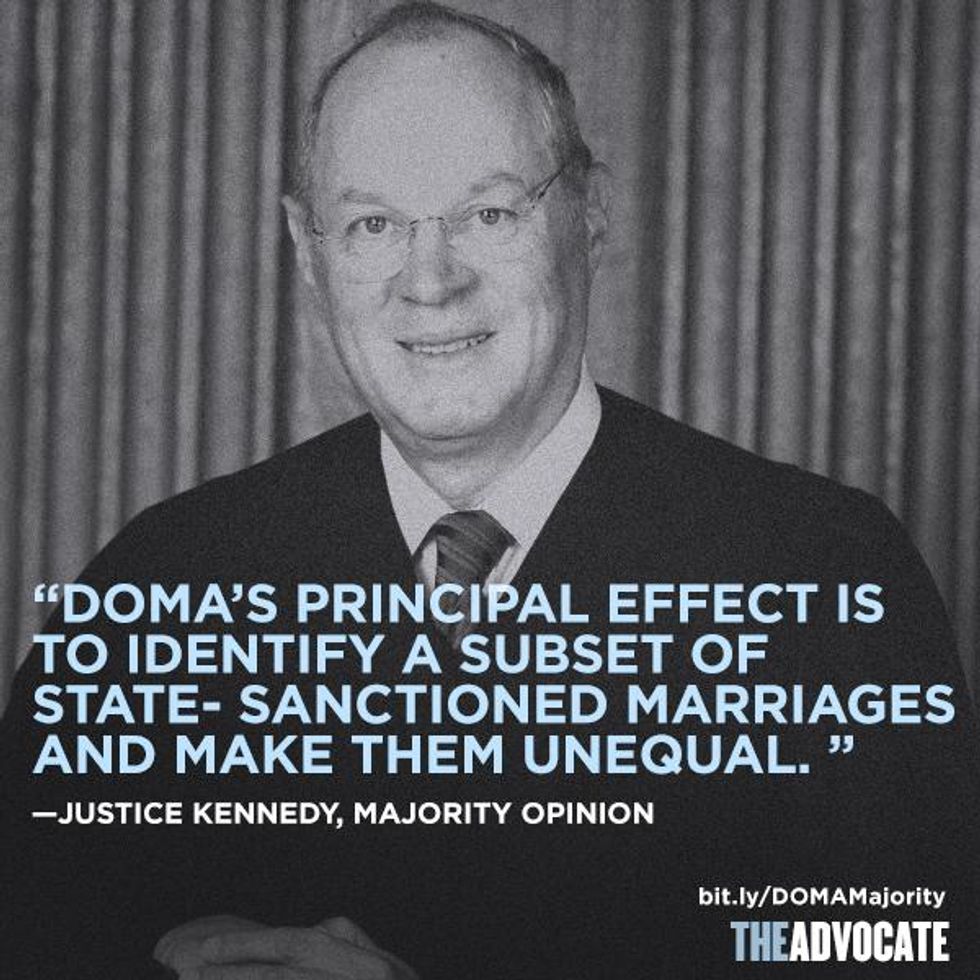
Pages 13-14
When at first Windsor and Spyer longed to marry, neither New York nor any other State granted them that right. After waiting some years, in 2007 they traveled to Ontario to be married there. It seems fair to conclude that, until recent years, many citizens had not even considered the possibility that two persons of the same sex might aspire to occupy the same status and dignity as that of a man and woman in lawful marriage. For marriage between a man and a woman no doubt had been thought of by most people as essential to the very definition of that term and to its role and function throughout the history of civilization. That belief, for many who long have held it, became even more urgent, more cherished when challenged. For others, however, came the beginnings of a new perspective, a new insight. Accordingly some States concluded that same-sex marriage ought to be given recognition and validity in the law for those same-sex couples who wish to define themselves by their commitment to each other. The limitation of lawful marriage to heterosexual couples, which for centuries had been deemed both necessary and fundamental, came to be seen in New York and certain other States as an unjust exclusion.
Pages 19-20
The States' interest in defining and regulating the marital relation, subject to constitutional guarantees, stems from the understanding that marriage is more than a routine classification for purposes of certain statutory benefits. Private, consensual sexual intimacy between two adult persons of the same sex may not be punished by the State, and it can form "but one element in a personal bond that is more enduring." (citing Lawrence v. Texas) Marriages performed in other jurisdictions and then by authorizing same-sex unions and same-sex marriages, New York sought to give further protection and dignity to that bond.
Page 21
The avowed purpose and practical effect of the law here in question are to impose a disadvantage, a separate status, and so a stigma upon all who enter into same-sex marriages made lawful by the unquestioned authority of the States.
Page 22
DOMA's principal effect is to identify a subset of state- sanctioned marriages and make them unequal. The principal purpose is to impose inequality, not for other reasons like governmental efficiency. Responsibilities, as well as rights, enhance the dignity and integrity of the person. And DOMA contrives to deprive some couples married under the laws of their State, but not other couples, of both rights and responsibilities.
Pages 22-23
By this dynamic DOMA undermines both the public and private significance of state-sanctioned same-sex marriages; for it tells those couples and all the world, that their otherwise valid marriages are unworthy of federal recognition.
Pages 23
Under DOMA, same-sex married couples have their lives burdened, by reason of government decree, in visible and public ways. By its great reach, DOMA touches many aspects of married and family life, from the mundane to the profound.
Page 25
While the Fifth Amendment itself withdraws from Government the power to degrade or demean in the way this law does, the equal protection guarantee of the Fourteenth Amendment makes that Fifth Amendment right all the more specific and all the better understood and preserved.
Page 25-26
DOMA singles out a class of persons deemed by a State entitled to recognition and protection to enhance their own liberty. It imposes a disability on the class by refusing to acknowledge a status the State finds to be dignified and proper. DOMA instructs all federal officials, and indeed all persons with whom same-sex couples interact, including their own children, that their marriage is less worthy than the marriages of others. The federal statute is invalid, for no legitimate purpose overcomes the purpose and effect to disparage and to injure those whom the State, by its marriage laws, sought to protect in personhood and dignity.





































































Charlie Kirk DID say stoning gay people was the 'perfect law' — and these other heinous quotes